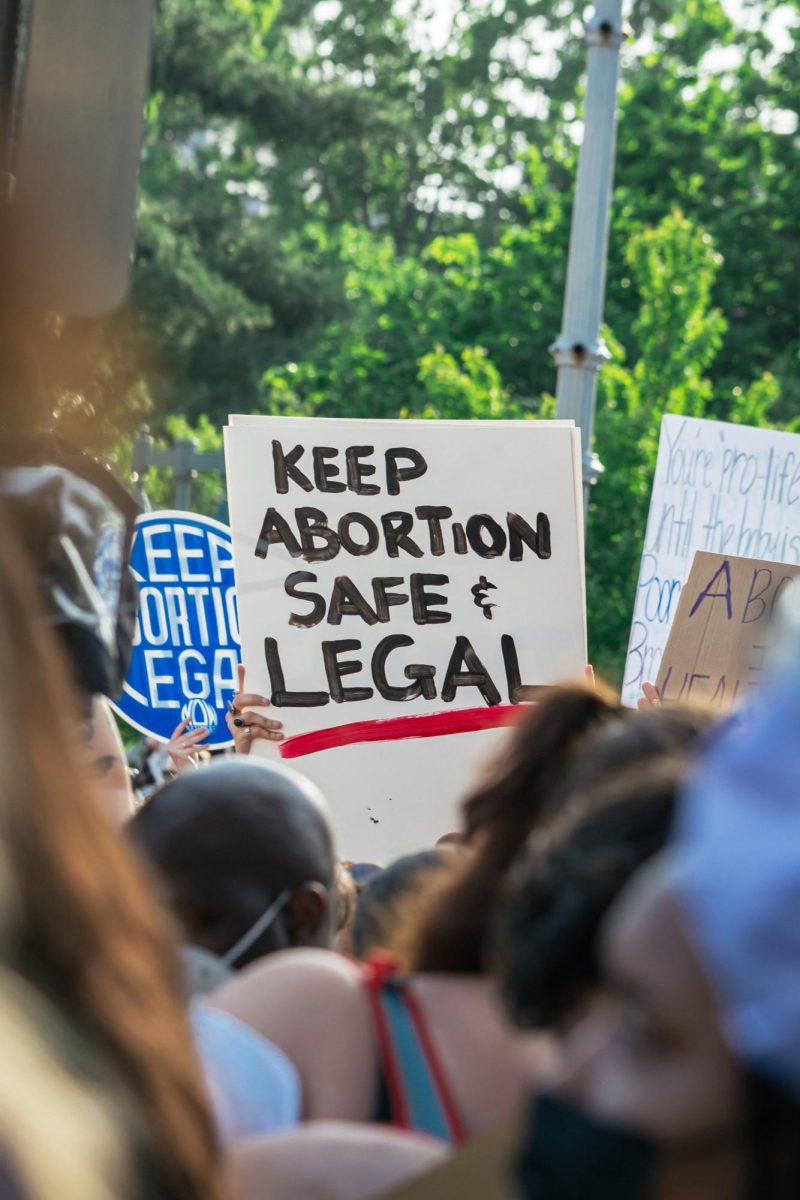Last year saw many new and unexpected changes in politics, especially those beneficial to the Democratic party. A contributing factor to these Democratic advances is the controversy surrounding abortion, which has gained significant political traction in the past few years.
These shifts can possibly indicate the scope of the 2024 election, and whether the Democrats can maintain a grip on the executive branch for another term.
In 2022, the overturning of Roe v. Wade in Dobbs v. Jackson Women’s Health Organization sparked outrage as a constitutional right of women was stripped away in an overwhelming 6-3 vote in the Supreme Court. Roe had been a paramount case in the context of the Feminist Movement in the 1970s, as it constitutionally protected safe and feasible access to abortion.
However, with the overturning of Roe, that feminist progression was suddenly reversed, and history repeated itself as the U.S. abdicated its protection of abortion rights.
Many Republicans celebrated this “progression” of the results of the Dobbs suit, with some state legislators immediately drafting new regulations and even total bans on abortion. Total—no exceptions for rape, incest, and maternal health; the pro-life motto seems contradictory if the mother’s health is at risk and she can’t access an abortion to save her life.
With 14 Republican states banning abortion under nearly all circumstances (NYT), women are enraged; 62% disapprove of the Dobbs decision (Pew Research Center).
Subsequently, politicians on both sides of the political spectrum have centered their campaigns around the issue of abortion, and Democrats have been achieving more success as some typically red states have maintained access to abortion following the 2023 election results.
In Ohio, for instance, an amendment was passed to constitutionally protect and guarantee the accessibility of abortion and other reproductive health services (AP). This was a significant win, with 56.6% voting for the amendment and 43.4% voting against it (NYT).
This outcome, could be indicative of the results of the 2024 presidential election. Ohio is notorious for being a swing state that typically sways right, with Trump winning the electoral college in 2016 and 2020. However, this 2023 amendment leans more toward Democratic policies, particularly the safeguarding of abortion, a practice conservatives are adamantly against.
This success extends beyond Ohio; states such as Virginia and Kentucky have had more Democratic success than in previous years, with voters signaling their desire for abortion protections.
In Virginia, Democrats claimed control of the state legislature, which could facilitate the circumvention of Republican Governor Glenn Youngkin’s political agenda; Youngkin, who is known to be pro-life, especially following his applauding of the overturning of Roe, and the 2023 election, could help thwart these pro-life “protections” and foster greater safeguards for abortion access.
In a statement, Virginia Senate Democratic Caucus Chair Mamie Locke said, “It’s official: there will be absolutely no abortion ban legislation sent to Glenn Youngkin’s desk for the duration of his term in office, period, as we have thwarted MAGA Republicans’ attempt to take total control of our government and our bodies.” (AP)
Moreover, in Kentucky, Andy Beshear, the Democratic governor, ran a campaign focused on reproductive rights in order to maintain his position as governor. One notable tactic was his pro-choice advertisement that featured a woman who told the story of being raped by her stepfather at age 12.
In the ad, the woman, named Hadley, says, “Anyone who believes there should be no exceptions for rape and incest could never understand what it’s like to stand in my shoes” (AP News).
Following that, the ad attacks Beshear’s Republican opponent Daniel Cameron, with Hadley saying, “This is to you, Daniel Cameron. To tell a 12-year-old girl she must have the baby of her stepfather who raped her is unthinkable.” (Politico)
Thanks to Hadley and Beshear’s remarkable pro-choice campaign, Beshear was reelected, thus making it probable that reproductive rights would be reinstated in Kentucky—another state that has typically swung right in previous presidential elections and has implemented a near-total ban on abortion.
After Beshear’s win, Kentucky residents are raising their voices in protest to the ban, with one woman going so far as to sue the state legislature. “The government has denied her access to the care she needs,” the American Civil Liberties Union said (CNN).
Abortion is a human right, and Democrats acknowledge that, which is prompting citizens to go out and vote to secure those liberties.
As of May 2023, a poll showed that about 85% of Americans approve of the legality of abortion in all or most cases (34% legal under any, 51% legal only under certain), which is a significant number of Americans (Gallup).
A democratic government must be reflective of the perspectives of its civilians. However, many politicians—especially those of the right—tend to prioritize their own agenda, rather than a reflection of the wants and needs of its citizens, clearly seen in the case of reproductive rights.
Though it is important to respect an individual’s religious affiliation, religion shouldn’t be influencing governmental policies that affect every citizen in the United States. Regardless of where one stands religiously, the law is applicable to the entire American population, which contains a diverse set of beliefs. Thus, politicians are free to be pro-life in their own lives, without dictating the choices a woman has over her own body.
Despite a polarized government, compromise may be necessary to reintroduce federal protection for abortion. For instance, the government could stipulated that if there were to be federal protection, states could be allowed to ban third-trimester abortions if their governments are so adamant about their anti-abortion views.
With the Democrats promoting safe and legal abortion, Republicans are at a considerable disadvantage in the 2024 election. Even right-leaning voters are acting to protect the legality of abortion, which could lead to a possible reinstatement of federal protection in the future.









